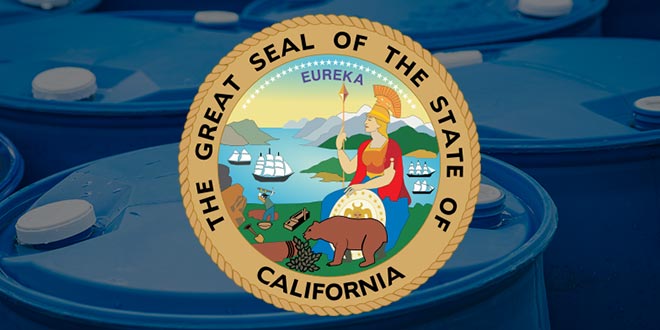Retailers across California have been working hard to keep their businesses on the right side of the law.
On Aug. 30, new regulations concerning California’s Safe Drinking Water and Toxic Enforcement Act, better known as Proposition 65, went into effect. The law “requires businesses to provide warnings to Californians about significant exposures to chemicals that cause cancer, birth defects and other reproductive harm” according to the California state government’s website.
Proposition 65 began as a November 1986 ballot initiative. Since then, warnings on many products—from household cleaners to furniture and even seafood—have become almost ubiquitous across the state. In 2016, new amendments to the law were approved that require retailers to reconsider how they approach Proposition 65 compliance.
Under the new regulations, products sold in California must clearly warn shoppers that they contain chemicals considered to be above the “safe harbor” level identified by the state’s Office of Environmental Health Hazard Assessment (OEHHA). These warnings require specific graphics, verbiage and identification of at least one of the potentially harmful chemicals, according to the state’s website.
In addition, if a product contains printed material in a language besides English, the Proposition 65 warnings must also appear in that language. Retailers who sell products over the internet to California residents must provide a warning on their website visible to the shopper before completing their purchase.
Retailers who don’t comply with the new regulations face stiff penalties. The California Attorney General’s Office enforces Proposition 65, and retailers who infringe on the new regulations face up to $2,500 per violation per day, according to the state’s website.
For Jamie Gentner, chief operating officer of Center Hardware & Supply in San Francisco, the new regulations have pros and cons.
“Proposition 65 has been a mixed blessing in California,” she says. “It’s done a service to our environment by protecting our drinking water supply, but it’s been hard for hardware retailers watching other states continue to use products that are now restricted.”
Gentner says that some manufacturers have reformulated their products to remove chemicals identified by OEHHA as potentially harmful, while others have simply stopped selling certain products to California retailers.
“All of our vendors used the grace period to get their warnings in order and, for the most part, we are able to still keep our regular product assortment. We thank them for the tedious work it took to get it all ready for compliance,” she says.
Augie Venezia, president of Fairfax Lumber & Hardware in Fairfax, California, says that while he understands Proposition 65’s intentions, complying with the new regulations has been a challenge.
Venezia says chemicals are constantly added to OEHHA’s list, which makes it difficult for retailers to keep warning signage up-to-date.
In addition, Venezia says there are several ambiguities in the law that potentially expose business owners to legal action.
“The problem we’re running into is that we do sell some products in bulk, and those products don’t lend themselves to the manufacturer putting a warning sticker on the products, like iron pipes and fittings and galvanized and zinc-plated fasteners. In those situations, we have to put up our own signage and maintain that signage to stay compliant,” he says.
Venezia is also reviewing how the new regulations will affect orders placed by telephone.
“The new rules say that you have to warn your customers before they make their purchase. So in the case of a delivery when you’re talking to someone over the telephone, we have to find the most efficient way to warn someone before they make their purchase,” he says. “Do we do that over the phone? Do we put them on hold while we gather the information we need to talk intelligently over the phone? Do we need to call them back, or do COD deliveries where we give them literature and they decide to accept or send the product back? It’s a nightmare.”
Venezia says that he and his team have been busy in the last few months, reviewing their in-store signage and going over paperwork from manufacturers that list products that contain chemicals known to OEHHA to cause cancer and birth defects.
Venezia says communicating with his employees has been crucial. He’s outlines the new regulations to his team and shown them new products that replace previous items that contained OEHHA-listed chemicals. He’s also instructed employees to briefly explain Proposition 65 to customers who ask, but to direct them to the state’s official website for more information.
“Do I believe Proposition 65 is the right thing for California? Ultimately, yes. But personally, I believe more in market solutions to issues rather than regulations and legislative mandates forcing us in a particular direction,” he says.
If you’re a California retailer who wants more information on the recent Proposition 65 regulations, visit the state’s official website for resources aimed at business owners.
 Hardware Retailing The Industry's Source for Insights and Information
Hardware Retailing The Industry's Source for Insights and Information








